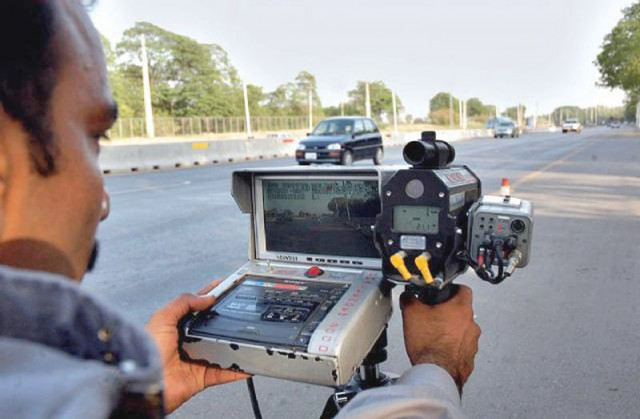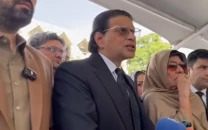LHC orders fix of Safe City cameras
PSCA project approval made must to protect cables

Lahore High Court (LHC) Justice Tariq Saleem Sheikh has directed the authorities concerned to ensure functionalization of a large number of closed-circuit television (CCTV) cameras operated by the Punjab Safe Cities Authority (PSCA).
The court ordered that no development or maintenance projects be launched without PSCA's approval to prevent damage to its fibre-optic cable network.
Justice Sheikh gave the directions while concluding a judgment disposing of an application with some remedies outlined regarding police's failure to bring on record the relevant evidence imperative for the just decision of a case.
He observed that the federal communications ministry had recently approved standard operating procedures (SOPs) for sharing CCTV footage from motorways and highways for investigations by law enforcement agencies. The SOPs had been submitted to the court in a separate case.
Following the protocol, an officer investigating a case may request footage from the ministry if necessary.
During the hearing, it was brought to the attention of the court that a significant number of CCTV cameras operated by the PSCA were currently not operational.
The court directed the authority concerned to look into this matter and take necessary steps to restore the cameras to full functionality as soon as possible.
It observed that the PSCA chairperson had appointed the Lahore division commissioner as the focal person to resolve issues of 'right of way' and ensure collaboration among various entities and departments.
Justice Sheikh noted that development and repair activities undertaken by various departments were damaging the fibre-optic cable network.
The commissioner had issued directives that all departments must consult the PSCA and secure approvals before launching any development or maintenance and repair project to safeguard the existing infrastructure.
The court observed that it had been reported that the directives were not being followed.
The chief secretary was directed to ensure that there would be no such violation in future.
The petitioner, Nasira Ashfaq, had approached the LHC after her requests seeking call-data record and CCTV footages had been declined at various forums.
She had contended that her husband had been falsely implicated in a narcotics case she could establish his innocence through the evidence. The petitioner had also alleged that police officials had demanded money for releasing her husband.
She had submitted applications to senior police officers for obtaining CCTV footage from the PSCA and call data record (CDR) from the cellular companies concerned but in vain.
She then submitted applications addressing the PSCA director general and chief operating officer for providing camera footage regarding the incident and the record of her call to the police helpline '15', which were turned down.
The petitioner had then approached a district and sessions court where her plea had been dismissed on the ground that the action would amount to interference in the investigation.
Justice Sheikh observed that the high court retained the authority to intervene if the investigation appeared to be conducted in bad faith or without jurisdiction.
Justice Sheikh underlined the remedies available when a police officer does not bring on record the evidence imperative for the just decision of a case.
Under Police Order 2002, a citizen dissatisfied with the investigation of a case can approach the supervisory officer charged with ensuring timely completion and verification of the investigation.
Article 18(10) provides that a deputy superintendent of police may verify the correctness of the investigation and accuracy of the conclusions through a case diary entry before submitting a report to a court.
The aggrieved person can also seek transfer of the investigation.
Thirdly, he can file a complaint to the Provincial Police Complaints Authority that can inquire and direct the investigating officer to take appropriate action or refer the matter to the competent authority for disciplinary or criminal action against him.
By the filing of the petition, the video recordings had been disposed of by the authority, while an additional advocate general had submitted that the investigating officer had obtained while the case was pending and placed it in the case file. In these circumstances, no further direction needed be issued, the judge observed.





















COMMENTS
Comments are moderated and generally will be posted if they are on-topic and not abusive.
For more information, please see our Comments FAQ